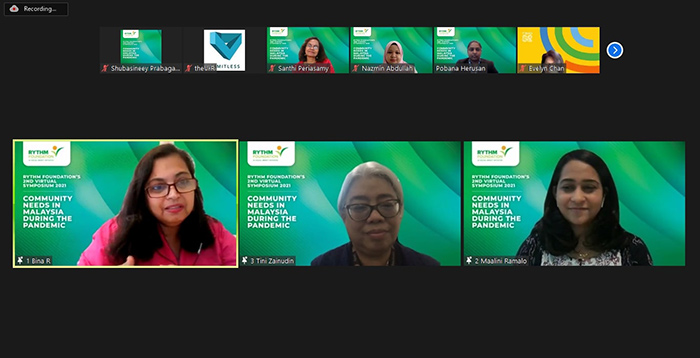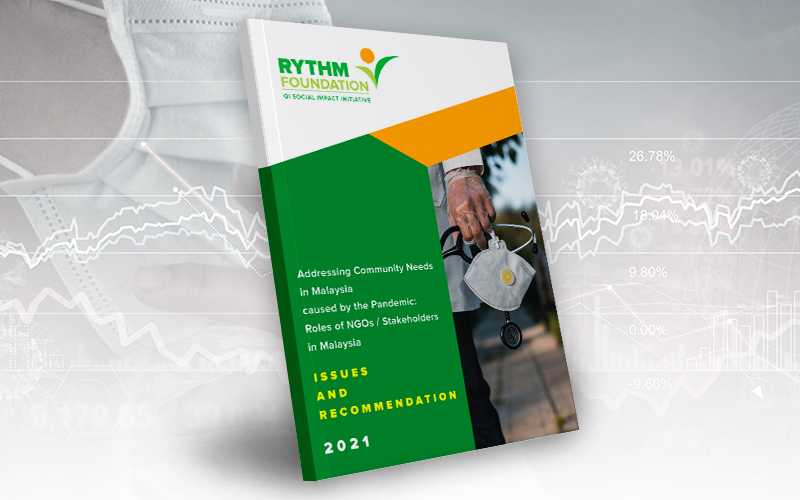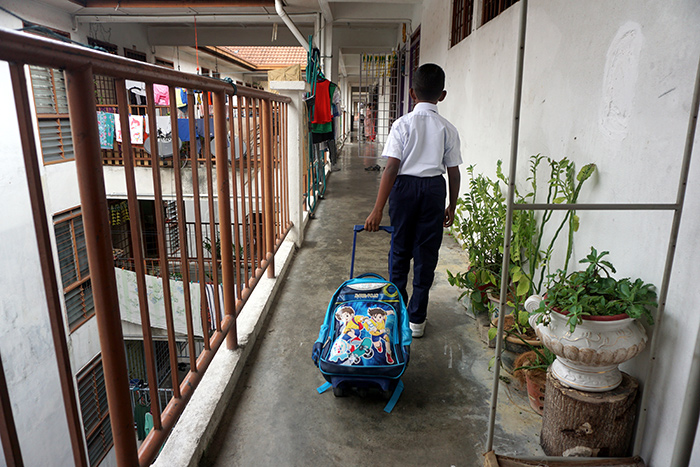Stateless children and families in Malaysia were hit particularly hard by the COVID-19 pandemic and the subsequent movement restrictions to stop the spread of the virus.
The severe effects of the pandemic on these groups was one of the core topics deliberated during two symposiums last year on “Addressing Community Needs in Malaysia During the Pandemic.” RYTHM Foundation, the social impact arm of QI Group, organised the meetings.
The panellists said the pandemic exacerbated the situation for these communities already facing dire marginalisation for decades.
At the height of the epidemic in 2020, a report by UNICEF Malaysia showed that many stateless families were already in highly precarious situations long before the outbreak.
“Many undocumented workers lost their jobs overnight, as they did not have official contract-based employment. They lived from paycheque to paycheque during pre-pandemic times, and most had no savings. Lack of income significantly affected parents’ ability to pay medical bills and provide sufficient food for the family,” the United Nations (UN) agency report said.
“Government assistance for these families and their children – those born in Malaysia to undocumented parents or born to one Malaysian parent, not registered and without documents – had been limited or non-existent even before the pandemic.”
Also read: Position Paper Series: Ensuring Financial Stability in the Battle Against COVID-19
The Plight of Stateless Children
The symposium discussions focused on the measures taken to support the nation’s stateless children, centring on current practices, the issues and challenges, and proposed recommendations.
These are detailed in a Position Paper by RYTHM on the framework and proposed solutions to the Malaysian government, which includes five other areas of concern: Malaysia’s indigenous communities, financial difficulties of the lower-income groups, special needs education, gender-based violence, and mental health and wellbeing.
RYTHM hopes the recommendations are implemented in the 12th Malaysia Plan (2021-2025) to mitigate the impact of the pandemic on vulnerable groups.
The panellists determined that addressing statelessness has been challenging because of the lack of awareness and knowledge.
“Stateless people in Malaysia are frequently referred to as outsiders or refugees from another nation. However, not all stateless people are foreigners or migrants; some are born and live among us since not all statelessness results from migration,” the paper said.
Several factors have led to stateless children in Malaysia – failure of marriage registration by their parents, unregistered births, adopted or abandoned children, and children of refugees and undocumented migrants.
“Stateless children in Malaysia are deprived of the same advantages and rights that children with Malaysian citizenship enjoy, such as cheaper healthcare and easier access to education.”

‘Dirty, Difficult, and Dangerous’
A significant concern is that stateless children are not eligible for government education. A conservative estimate suggests that more than 300,000 children in Malaysia are currently denied education due to being stateless, undocumented, refugees or asylum-seekers.
“Because non-citizen children are not eligible for government education, gaps have been filled by those concerned about the children’s welfare. Learning centres established by NGOs, faith-based organisations, individuals, and communities to provide education for children primarily focus on fundamental education, reading, writing and counting. Some follow a more simplified education syllabus.”
Also read: Position Paper Series: The Impact of COVID-19 on Special Needs Education in Malaysia
Another vital area of concern is the lack of healthcare for the stateless. The paper said public health advice and measures did not always reach the stateless due to the communities’ “invisibility”.
“As stateless people do not have access to education, many are illiterate, which is a barrier to gaining public health information or responses during emergencies such as COVID-19.
“NGOs and private entities have offered healthcare services to the undocumented and stateless for free or at a significantly lower cost than any public or private health facility. However, these services are mostly only offered in Peninsular Malaysia.
According to the speakers, the prevalent issues among stateless children worsened post-pandemic.
“Violence against children, mental health issues, and other documented protection issues have surfaced. In varying degrees, these issues intersect with the socioeconomic status of families and children, with the common denominator being that children from low-income families are more exposed and vulnerable.
“This is even more difficult for families with stateless or undocumented children. There has been a rise in domestic violence, especially in incest cases. Children are trying their best to hide away from parents for fear of being punished for calling for help.”
Also read: Position Paper Series: The Pandemic of Gender-Based Violence
The paper also highlighted the lack of official support for the community. “Since Malaysia is not a signatory to statelessness conventions by the UN, it does not recognise statelessness.”
The pandemic-induced restrictions had a particularly devastating effect on the stateless communities’ ability to earn a living.
“The majority are employed informally in daily wage jobs in construction, agriculture, food and beverage, and domestic work. Work performed by stateless and legally marginalised individuals is frequently characterised as ‘3D’ (dirty, dangerous, and difficult), and does not include benefits such as health, unemployment insurance or strong labour protections.”
The multiple challenges facing efforts to address the issue include leaders’ lack of political will. In addition, the panellists cited the country’s reservation to Article 7(1) of the United Nations Convention on the Rights of the Child (UNCRC) 1989 and failure to ratify Article 24 of the 1966 International Covenant on Civil and Political Rights (ICCPR), which guarantees the right to education, name, and nationality.
“Currently, no political parties are taking a leadership role in advocating for policies that improve universal child health and the lives of marginalised children.”
The session’s key speakers stressed that community involvement and advocacy were crucial to highlighting the plight of the stateless to policymakers.
The meeting also recommended that government agencies work with local organisations to conduct public awareness campaigns, particularly in rural areas, and complete a census on the number of stateless people.
The speakers acknowledged that the government could not handle the massive predicament facing stateless communities and children on its own. Instead, it called on the authorities to work with NGOs reaching out to women and children with community welfare services. It also proposed establishing shelters for stateless survivors of domestic violence or supporting existing women’s shelters operated by NGOs.
“When left unresolved, statelessness heightens the risk of intergenerational statelessness. Therefore, a short- and long-term plan must be available to address the issue at the federal level and ensure that it includes stateless children in East Malaysia.”






